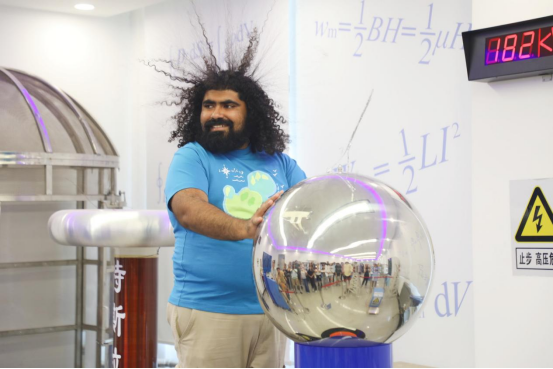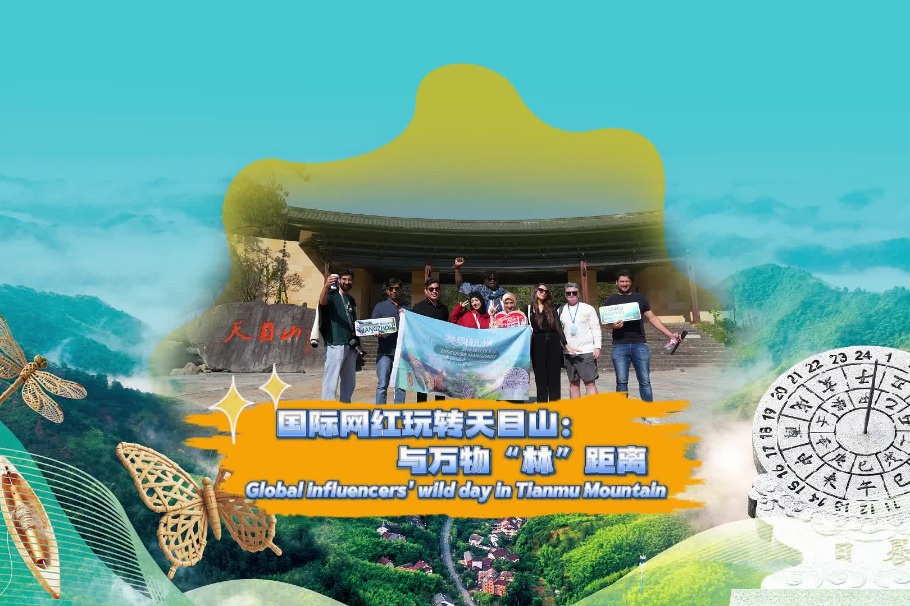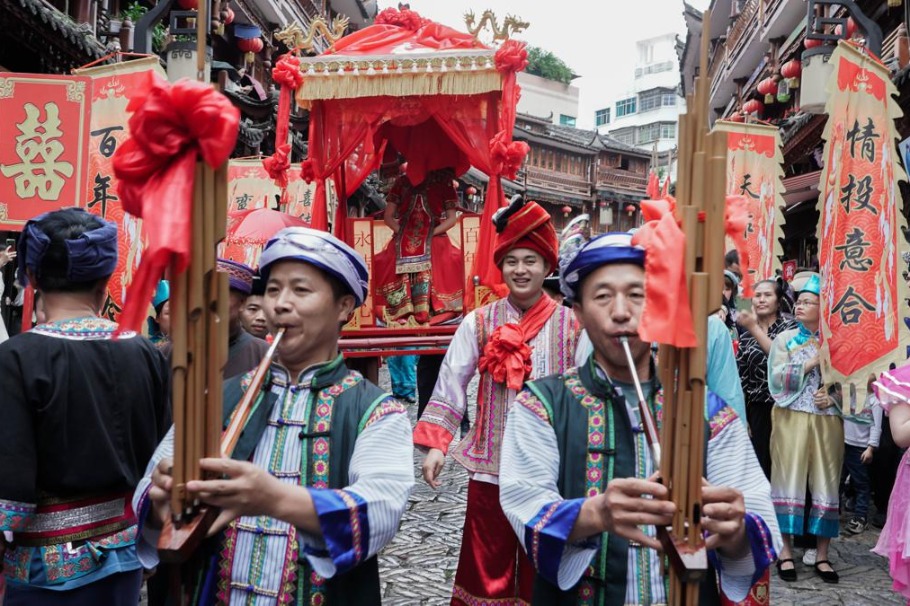University of Arizona delegation studies innovation at university in Tianjin


A 20-member delegation of students and faculty from the University of Arizona in the United States recently embarked on a study visit to Hebei University of Technology in Tianjin, which blended exposure to China's technological advancements and cultural heritage.
The journey began on May 21 and lasts until June 2. It includes tours of historical landmarks like the Great Wall, the Forbidden City, and the Temple of Heaven in Beijing.
The students are also gaining insights into China's modern innovations by visiting tech companies, including a JD logistics base in Langfang, Hebei province, Goldwind Science & Technology in Beijing, and a robotics enterprise in Tianjin.
One highlight has been the cross-cultural 3D printing project. Students from both sides collaborated to design and print intricate traditional palace lanterns.
"Fusing Chinese and Western design ideas, we solved technical challenges together," said Mao Guanjie, a HEBUT student who served as a technical guide.
Matias Contreras, a University of Arizona student, noted the novelty of the experience and praised his Chinese peers' creativity in merging culture with AI tech.
"As a student majoring in mechanical engineering, some unfamiliar small programs and new technologies are very appealing to me," he said.
Other activities included a friendly sports competition and hands-on sessions about making dumplings and zongzi — a traditional Chinese delicacy made of glutinous rice wrapped in bamboo leaves that's usually eaten during the upcoming Dragon Boat Festival.
- China's JUNO neutrino detector delivers first results, hints at 'new physics'
- New study reveals snow-ground thermal coupling on Qinghai-Tibet Plateau
- Mainland official highlights greater opportunities for Taiwan businesses on mainland
- Students in Xinjiang's prestigious ski destination to embrace 1st 'snow break'
- Macao SAR chief executive delivers policy address on reform, economic diversification
- Chinese vice-premier calls for enhanced economic, trade exchanges on Eurasian continent





































